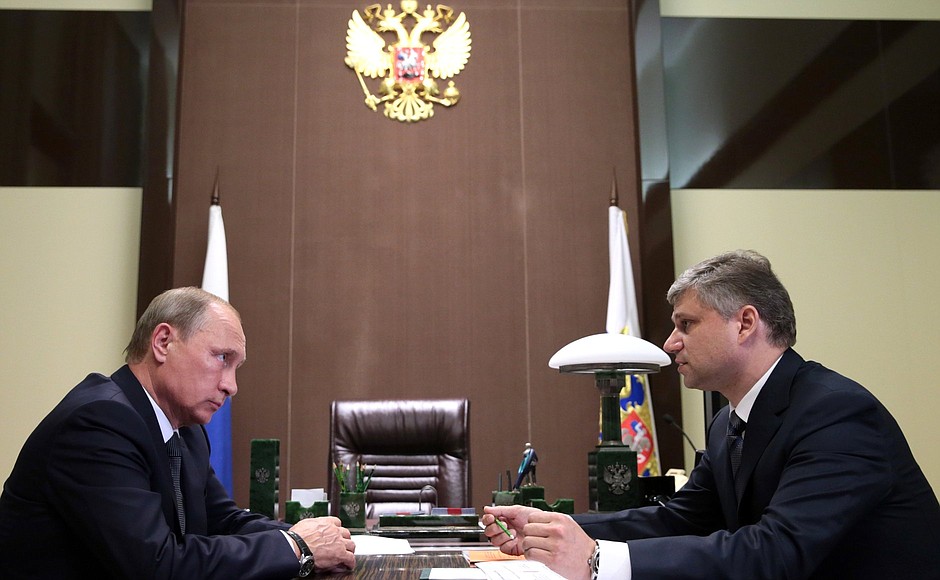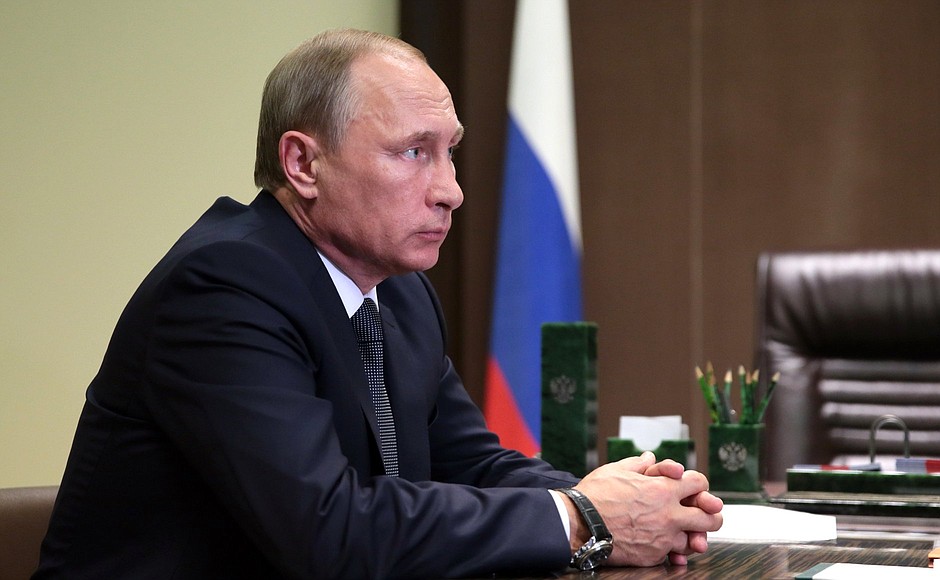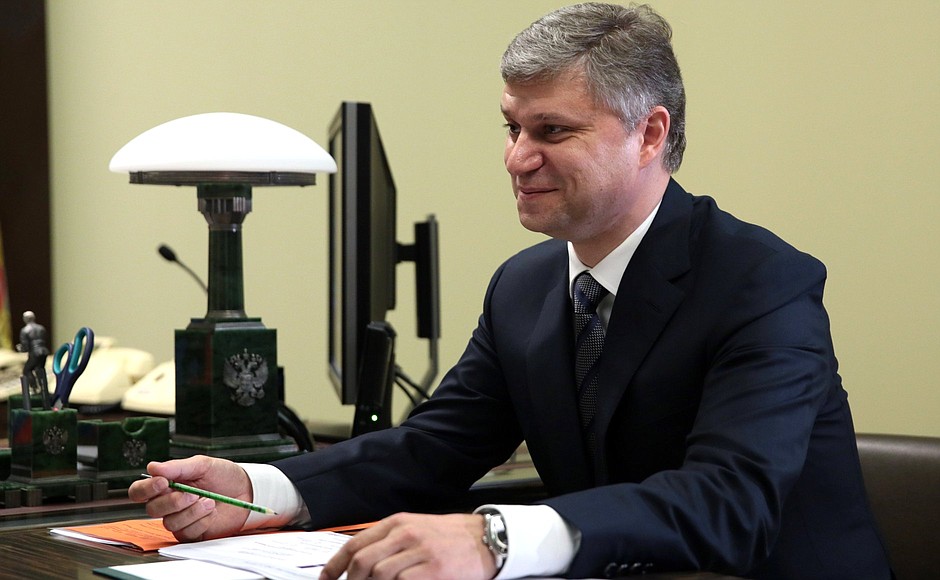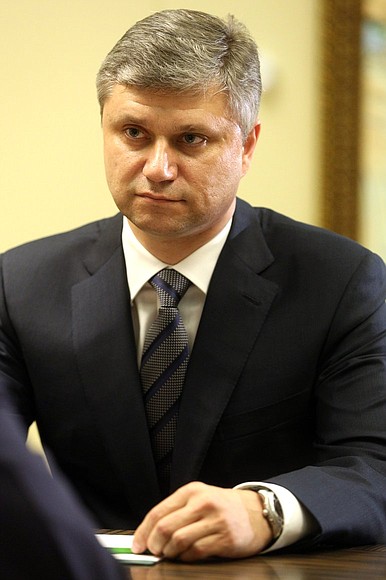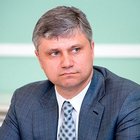President of Russia Vladimir Putin: Mr Belozerov, first of all, I would like to congratulate you on your appointment as CEO of a company like Russian Railways. It is no exaggeration to say that this is one of the key elements of Russia’s entire economy. A great deal depends on Russian Railways, in terms of supporting the competitiveness of the nation’s economy.
You are a man of experience: from 2009, you worked as Deputy Transport Minister, and most recently, you were the first deputy. You are familiar with the automotive industry, or rather, the road construction industry, and recently, you have been dealing with the Russian Railways’ investment activity at the Ministry.
Here is why I brought up your road construction experience. You will have the opportunity to compare and see what else needs to be done to make our railways more effective as compared to trucking activities. I mean that in a certain segment, shippers are switching over to road transport. So the question is: why?
We now know that due to the overall state of the economy, there has been a small decrease in shipping over January-August; freight turnover declined slightly during that period, by 0.4%. There is nothing special about this, but nevertheless, we need to pay attention to it, just as we should pay attention to work with the regions to provide local transport services.
Of course, we need to continue active work on passenger transportation, meeting the needs of the economy and freight transport. Russian Railways is one of the largest consumers of our resources, the metals industry, first and foremost: rails, transport engineering, including carriage building, engines and electric locomotives. Overall, Russian Railways is the largest customer, so the state of other sectors in the Russian economy depends on the volume of your orders.
Let’s talk about all these issues, and perhaps some others that you think are worth discussing.
CEO of Russian Railways Oleg Belozerov: Thank you very much.
Mr President, I would like to begin by thanking you for your trust. I will do my best to justify it.
Please allow me to report on the company’s performance results for the last eight months.
Vladimir Putin: As far as I understand, the investment plan for January-August is even ahead of schedule.
Oleg Belozerov: Yes, that is absolutely correct. We are ahead of the targets set initially and at the same time, we have now balanced out several indicators so that it does not affect the company’s work overall.
As you said, freight turnover has dropped a little bit – by just 0.4%. Overall for the year, we expect it to decrease by 1.8%, but we are currently taking all measures so that this indicator is better, and we feel that we will improve it somewhat.
Passenger operations also decreased overall, by 7.4%. The main cause for this drop is long-distance passenger traffic, first and foremost, international, which decreased by about 40%.
However, there are positive trends as well. First of all, the volume of freight in the Far East is growing – transport operations via the Far East ports have grown 6%. We are working actively on key areas of passenger transportation, as you already said. Our indicators have not declined and we transported over 6 million people travelling to the North Caucasus, and we increased the volume of passengers travelling to resorts such as Adler and Sochi by 21%. We also registered a 12% increase in the number of passengers going to Crimea.
Now, we are trying to pay more attention to customer service and based on the numerous requests, we have launched high-speed day passenger trains. We have 25 new routes that have transported over 2.5 million passengers this summer, which is a 35% increase compared to 2014.
Also, as you know, the Sapsan trains are working well. This summer, we transported over a million passengers, which is a 27% increase. We launched the new Moscow-Nizhny Novgorod route and transported over 300,000 people on the new Strizh trains.
Furthermore, as you instructed, we keep the situation with suburban traffic under control. It has been stabilised and is under control; we are constantly working with the regions. We are developing comprehensive transport plans jointly with the Transport Ministry in order to clearly understand what types of transport we will use to carry the population next year as well.
At the same time, I want to recall this and thank you very much for the decision to introduce a zero VAT rate for suburban traffic and set a preferential rate of 0.01% for infrastructure service rates. All this was compensated by the government this year.
We are also trying to compensate for negative external factors through the company’s good, effective work. First of all, we were able to increase income by 8.7%, from 920 billion to 1 trillion rubles. At the same time, I would like to point out that our costs grew by only 7.3% in the first eight months, which is half the rate of inflation for this period.
We are giving separate attention to employee productivity, and our productivity has grown by over 5%.
Vladimir Putin: Salaries grew by 8.4%.
Oleg Belozerov: Yes. I met several times with trade unions concerning salaries. The unions are raising these questions, we are communicating with them, and next year, we will also provide certain balanced proposals.
As you very rightly said, Russian Railways’ investment budget is 427 billion rubles, but the indicators are good: 101% over eight months, and by the end of the year, we will practically implement our entire investment programme and make it on time.
Now a few words about major infrastructure projects, first and foremost, the BAM (Baikal-Amur Mainline) and Transsib (Trans-Siberian Mainline), which we are carrying out in accordance with your instructions.
Last year, in 2014, 11 facilities were commissioned; this year, we plan to commission seven major facilities: two crossings and five stations. That’s over 1,200 kilometres.
Vladimir Putin: On the BAM or Transsib?
Oleg Belozerov: Both. We consider them to be one project, so that is the total.
Ust-Luga is a separate project. The port is growing; since 2010, the volume of transhipments grew five-fold. This year, it will grow by another 15%. We are signing contracts with stevedores and are ensuring full traffic capacity for the port’s growth. At the same time, our capacity development programme is fully synchronized with the port; this year, we will launch the first phase, and we will finish by summer 2016.
We are also continuing work on approaches to ports in the Azov-Black Sea region. You held a meeting on August 20. We held a commissioning tour and are also ahead of schedule in this area. In other words, we have fulfilled all plans on time.
Vladimir Putin: What is the investment volume?
Oleg Belozerov: 166 billion rubles total. We have plans for around 20 billion rubles next year, which we will also take into account in our budget.
Another area is the Moscow transportation hub.
Vladimir Putin: How are things going with the railway ring around Moscow?
Oleg Belozerov: I just wanted to report that in December of this year, we plan to launch test trains on the ring railway, and by August or September of next year, it will begin to operate. All the work is progressing on time. The Moscow transportation hub has not only circular but also radial traffic, and on October 1, we plan to launch the Lastochka suburban commuter trains on all major destinations, something we did not have before. We will be able to carry more passengers.
We are working on a high-speed railway project between Moscow and Kazan. As you know, we signed an agreement with a Russian-Chinese consortium to develop project documentation. Within the framework of intergovernmental agreements signed, we must present the final version of the model by December. At this point we are discussing how to best combine our financial options with those of our Chinese partners.
Vladimir Putin: To combine financial options and distribute risks, in the sense that a significant part of the equipment will be purchased from foreign investors. We need to distribute the risks.
Oleg Belozerov: That is absolutely true. Indeed, we are working very actively on this issue now. Next year, we plan to complete the designwork and report to you on the possibility of holding either a concession tender or – we have some special considerations that we also want to analyse by December.
<…>
